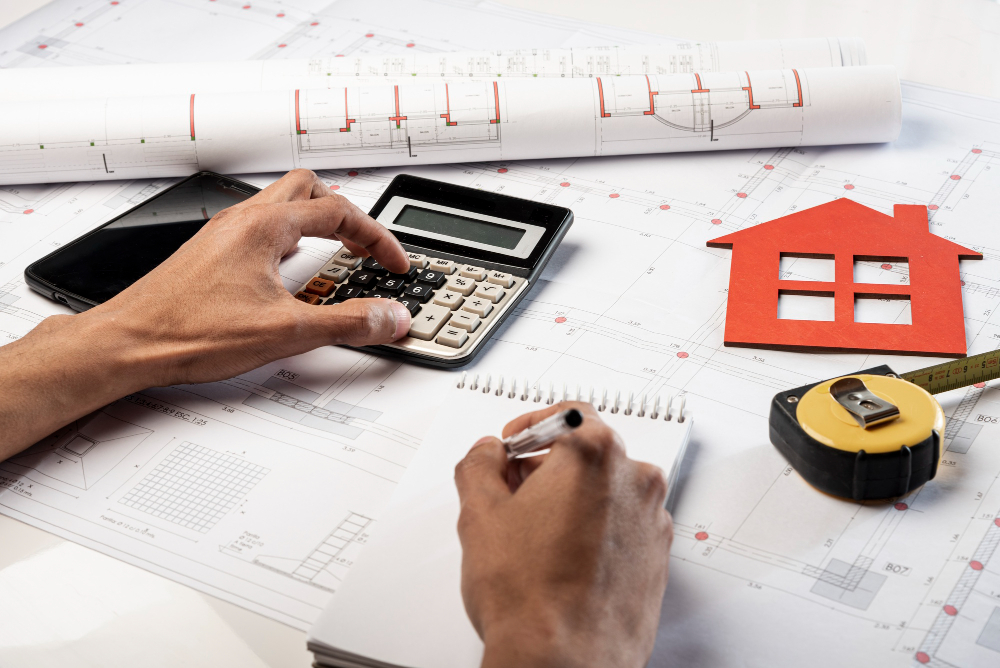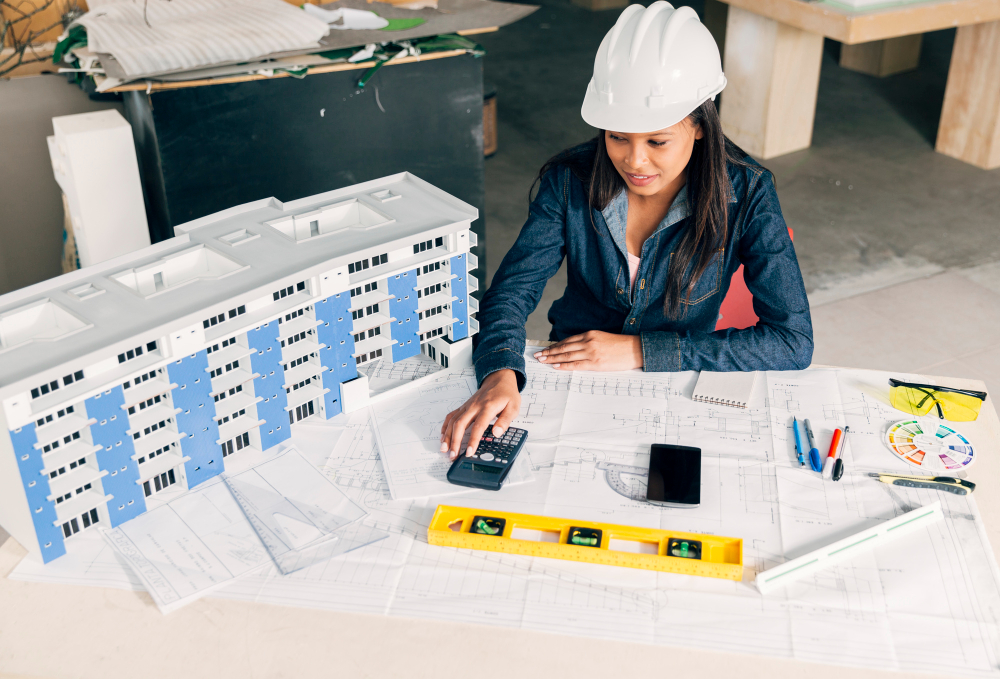
Residential Construction Estimator: Building with Cost Confidence
Estimating the total cost is one of the most important tasks in building a new home or remodeling an existing one. For homeowners, contractors, and developers to efficiently anticipate costs, allocate budgets, and manage resources, a residential construction estimator is essential. Projects run the danger of exceeding budget, experiencing delays, or sacrificing quality in the absence of precise estimation.
The function of a residential construction estimator, its significance, the instruments employed, and its effects on the whole construction project lifecycle are all covered in this handbook.
What is a Residential Construction Estimator?



An expert or software program that estimates the costs of building a home or residential complex is called a residential construction estimator. This covers personnel, equipment, permits, building supplies, and other overhead expenses. Before construction starts, estimators make sure contractors and project owners are aware of the financial needs.
Construction cost estimation software, which automates computations and lowers human error, is frequently used in modern estimating. The entire budgeting process is made smooth and effective by these solutions’ integration with construction project management tool.
Why Accurate Estimation Matters in Residential Construction

Knowing the pricing is only one aspect of accurate cost forecasting; another is making sure the project is successful overall. A residential construction estimator is crucial for the following reasons:
- Avoids Overspending on the Budget Estimators lower unforeseen costs by projecting labor and material costs.
- Enhances Resource Allocation: Assists contractors in effectively scheduling work and acquiring supplies.
- Helps the Contractor Bidding Process: Contractors are able to submit reasonable yet competitive bids.
- Improves Project Scheduling: Estimation is closely related to project schedules and timelines, which guarantees that deadlines are fulfilled.
- Transparency is increased since homeowners can clearly see where their money is going.
Key Components of Residential Construction Estimation
A qualified residential construction estimator divides expenses into multiple groups:
- Takeoff of Materials
This process, sometimes referred to as a building material takeoff, entails enumerating and measuring all necessary building supplies, including cement, steel, lumber, tiles, wiring, and plumbing fixtures.
- Labor Expenses
One of the biggest expense areas is frequently labor. Hourly pay, subcontractor fees, and overtime expenses are all taken into account by estimators.
- The price of the machinery and equipment required for the project, such as scaffolding, cranes, and excavators.
- Legal Approvals and Permits
Costs are increased by the need for zoning approvals, safety inspections, and local authority permits for every residential project.
- Contingency and Overhead
Unexpected expenses are unavoidable. To account for unforeseen difficulties, estimators typically include a 5–10% contingency.
Tools and Technology in Construction Estimation
In the past, estimating was done by hand using calculators and spreadsheets. The procedure has been transformed by modern technologies.
- Construction Estimation Software simplifies computations and lowers errors.
- Home construction cost calculators give homeowners fast, comprehensive estimates.
- Project Management Integration: To improve scheduling and reporting, software frequently interfaces with construction project management platforms.
Well-known estimating technologies take into account changes in labor availability and material cost while providing real-time cost updates through AI and machine learning.

Benefits of Hiring a Residential Construction Estimator
- Realistic financial planning is ensured by accurate budgeting.
- Time Savings: Calculations that are automated save important time.
- Improved Decision-Making: Gives homeowners the ability to select from a variety of design options.
- Competitive Bidding: Contractors who submit accurate bids have an advantage in the bidding process.
- Identifying cost issues before they affect the project is known as risk reduction.
We are Certified Estimation company in USA










Common Challenges in Cost Estimation
Construction estimating has its own set of difficulties, even using contemporary tools:
- Price fluctuations for building materials process
- Lack of workers
- Unexpected site circumstances
- Unfinished architectural plans
- Ineffective stakeholder communication
A competent residential construction estimator uses the appropriate resources and in-depth research to tackle these issues.
Future of Residential Construction Estimation
The industry is evolving towards automation, AI-powered prediction models, and cloud-based systems. BIM (Building Information Modeling), which generates 3D models connected to real-time cost data, is now integrated into sophisticated systems.
Both major residential developers and small-scale homeowners can benefit from this forward-looking approach, which guarantees increased accuracy, reduces waste, and speeds up decision-making.
Q&A Section
Q1: What does a residential construction estimator do?
A residential construction estimator calculates the total cost of building a home, covering materials, labor, permits, and contingencies.
Q2: Is estimation software better than manual calculation?
Yes. Estimation software reduces human error, saves time, and provides more accurate forecasts compared to manual methods.
Q3: How can homeowners use an estimator before building?
Homeowners can use a home construction cost calculator for an initial estimate, then consult a professional estimator for detailed projections.
Q4: What’s the difference between residential and commercial construction estimation?
Residential projects focus on homes, apartments, and small complexes, while commercial projects involve larger infrastructures like offices, malls, and industrial facilities.
Q5: How does estimation help prevent delays?
By aligning budgets with project timelines and scheduling, estimators ensure materials and labor are available on time, reducing delays.
Final Thoughts: Why Every Project Needs a Residential Construction Estimator
Ignoring precise cost forecasting in the fast-paced real estate industry of today might result in missed deadlines and financial distress. The road map for successful project completion, cost management, and efficient budgeting is provided by a residential construction estimator. Accurate estimating is the cornerstone of effective construction management, whether you’re a contractor bidding on a residential project or a homeowner designing their ideal home.
Residential projects can be completed on schedule and within budget by combining sophisticated equipment, professional knowledge, and astute planning.
